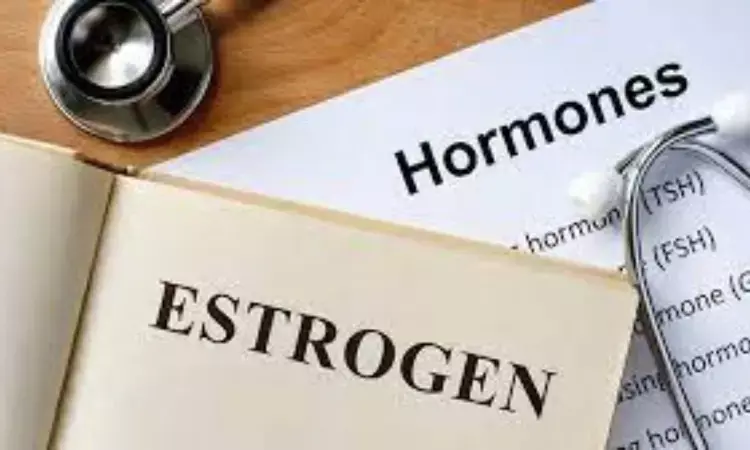- Home
- Medical news & Guidelines
- Anesthesiology
- Cardiology and CTVS
- Critical Care
- Dentistry
- Dermatology
- Diabetes and Endocrinology
- ENT
- Gastroenterology
- Medicine
- Nephrology
- Neurology
- Obstretics-Gynaecology
- Oncology
- Ophthalmology
- Orthopaedics
- Pediatrics-Neonatology
- Psychiatry
- Pulmonology
- Radiology
- Surgery
- Urology
- Laboratory Medicine
- Diet
- Nursing
- Paramedical
- Physiotherapy
- Health news
- Fact Check
- Bone Health Fact Check
- Brain Health Fact Check
- Cancer Related Fact Check
- Child Care Fact Check
- Dental and oral health fact check
- Diabetes and metabolic health fact check
- Diet and Nutrition Fact Check
- Eye and ENT Care Fact Check
- Fitness fact check
- Gut health fact check
- Heart health fact check
- Kidney health fact check
- Medical education fact check
- Men's health fact check
- Respiratory fact check
- Skin and hair care fact check
- Vaccine and Immunization fact check
- Women's health fact check
- AYUSH
- State News
- Andaman and Nicobar Islands
- Andhra Pradesh
- Arunachal Pradesh
- Assam
- Bihar
- Chandigarh
- Chattisgarh
- Dadra and Nagar Haveli
- Daman and Diu
- Delhi
- Goa
- Gujarat
- Haryana
- Himachal Pradesh
- Jammu & Kashmir
- Jharkhand
- Karnataka
- Kerala
- Ladakh
- Lakshadweep
- Madhya Pradesh
- Maharashtra
- Manipur
- Meghalaya
- Mizoram
- Nagaland
- Odisha
- Puducherry
- Punjab
- Rajasthan
- Sikkim
- Tamil Nadu
- Telangana
- Tripura
- Uttar Pradesh
- Uttrakhand
- West Bengal
- Medical Education
- Industry
Vaginal Oestrogen Therapy in Postmenopausal Women With Pelvic Organ Prolapse: Study

Pelvic organ prolapse (POP) is a major healthcare issue characterised by the descent of one or more of the female pelvic organs (bladder, uterus, rectum, vaginal walls or vaginal cuff), affecting up to 50% of postmenopausal women. Frequently, it can be associated with symptoms such as pelvic pressure or discomfort, urinary incontinence or difficulties in urinating, bowel dysfunctions and discomfort during sexual intercourse, having a detrimental impact on sexual function and overall quality of life. The descent of the pelvic organs is often inextricably bound up with a very common comorbid condition: the genitourinary syndrome of menopause (GSM), comprising vulvovaginal atrophy (VVA) that also plays a crucial role. This pathologic condition is strongly connected to weakening or damage of pelvic floor muscles and connective tissues, often occurring during postmenopause along with declining oestrogen levels, with incidence rising with age.
Although separating menopause effects from general ageing is arduous, the oestrogen-responsiveness of pelvic organs and surrounding epithelium, connective and muscular tissues is well-established. The decline of endogenous oestrogen levels gradually leads to thinning of the vaginal wall, causing dryness, soreness and irritation: factors all contributing to a vicious cycle, worsening POP severity. For all these reasons, despite surgical repair remaining the mainstay treatment for symptomatic prolapse, considerable attention has been paid to perioperative vaginal oestrogen as a potential aid in maximising surgical outcomes.
To clarify the state of evidence, authors conducted a systematic review of randomised controlled trials (RCT) available in the literature up to December 31, 2024 on the topic, intending to shed light on the ongoing long-standing issue: does perioperative vaginal therapy with oestrogen have any impact on the perioperative outcomes of postmenopausal women with POP who undergo vaginal surgical repair?
Only prospective, randomised controlled trials (RCT) examining perioperative vaginal oestrogen therapy in postmenopausal women undergoing POP surgery were included. Study identification and data extraction were independently performed by two and three authors, respectively. The Cochrane Collaboration's tool was used to assess bias, with disagreements resolved by a fourth reviewer.
Ten studies involving 709 patients were analysed. Vaginal oestrogen therapy showed a positive effect on Vaginal Maturation Index (VMI), vaginal thickness and surgeon's perception of tissue quality. It also appeared to reduce postoperative urinary tract infections (UTIs) and antibiotic use. However, no significant impact on sexual function, surgical ease, rates of surgical failure or POP recurrence was observed.
Among the outcomes assessed in the included trials, cytological and histological changes of the vaginal tissue after oestrogen treatment are the most frequently investigated (7 out of 10 studies), with the majority evidencing a favourable impact of oestrogen therapy on VMI and vaginal thickness at surgery. Nevertheless, results regarding the presence of granulation tissue after local oestrogen treatment were inconclusive.
Data concerning the impact of perioperative vaginal oestrogen therapy in postmenopausal women undergoing surgery for POP are limited. To date, the preponderance of evidence supports the use of vaginal oestrogens before surgical interventions for POP, based on objective improvements in tissue quality at surgery and likely decreased frequency of early postoperative infections (including UTIs). Nevertheless, ongoing postoperative use of local oestrogen for preventing recurrent prolapse is not supported by the literature and current evidence is too weak to draw any solid conclusion. So far, no clear impact on sexual function, quality of life, surgical ease or POP recurrence seems to stand out. Further research should better address the role of vaginal oestrogen treatment in postmenopausal women before and after vaginal surgical repair for POP, with more trials following standardised protocols (uniformizing compounds, posology, therapy lengths, surgical techniques and time points of measurement), with the aim to provide more accurate scientific evidence on the impact on perioperative outcomes and possible benefits or harms of vaginal oestrogen therapy in this category of patients.
MBBS, MD Obstetrics and Gynecology
Dr Nirali Kapoor has completed her MBBS from GMC Jamnagar and MD Obstetrics and Gynecology from AIIMS Rishikesh. She underwent training in trauma/emergency medicine non academic residency in AIIMS Delhi for an year after her MBBS. Post her MD, she has joined in a Multispeciality hospital in Amritsar. She is actively involved in cases concerning fetal medicine, infertility and minimal invasive procedures as well as research activities involved around the fields of interest.


